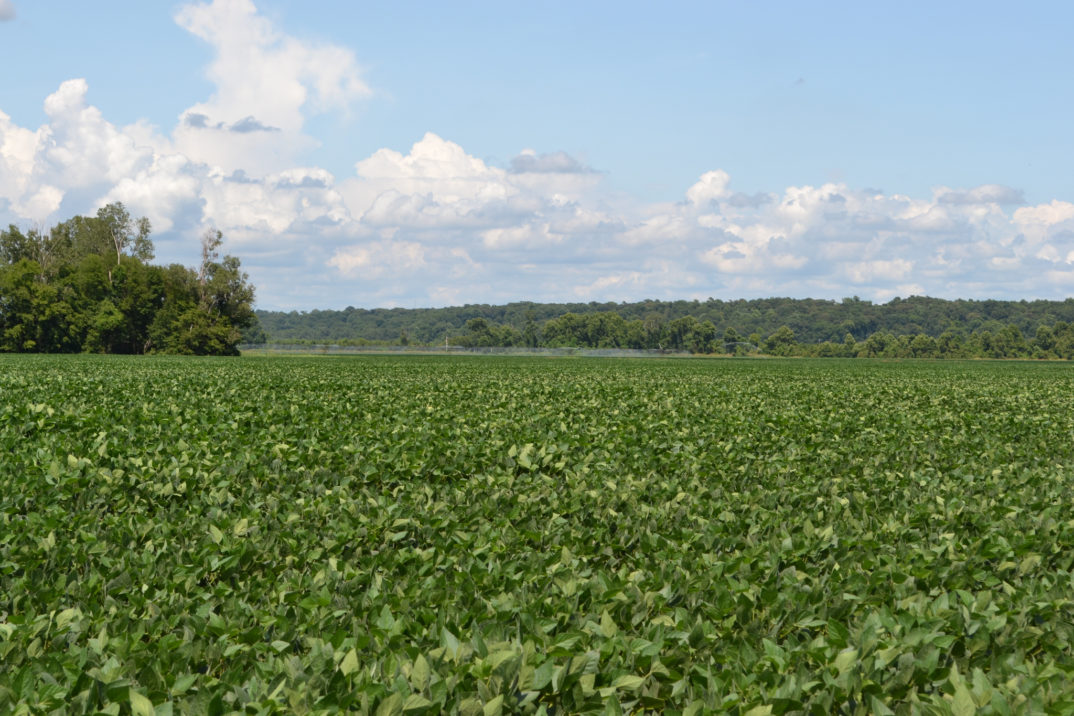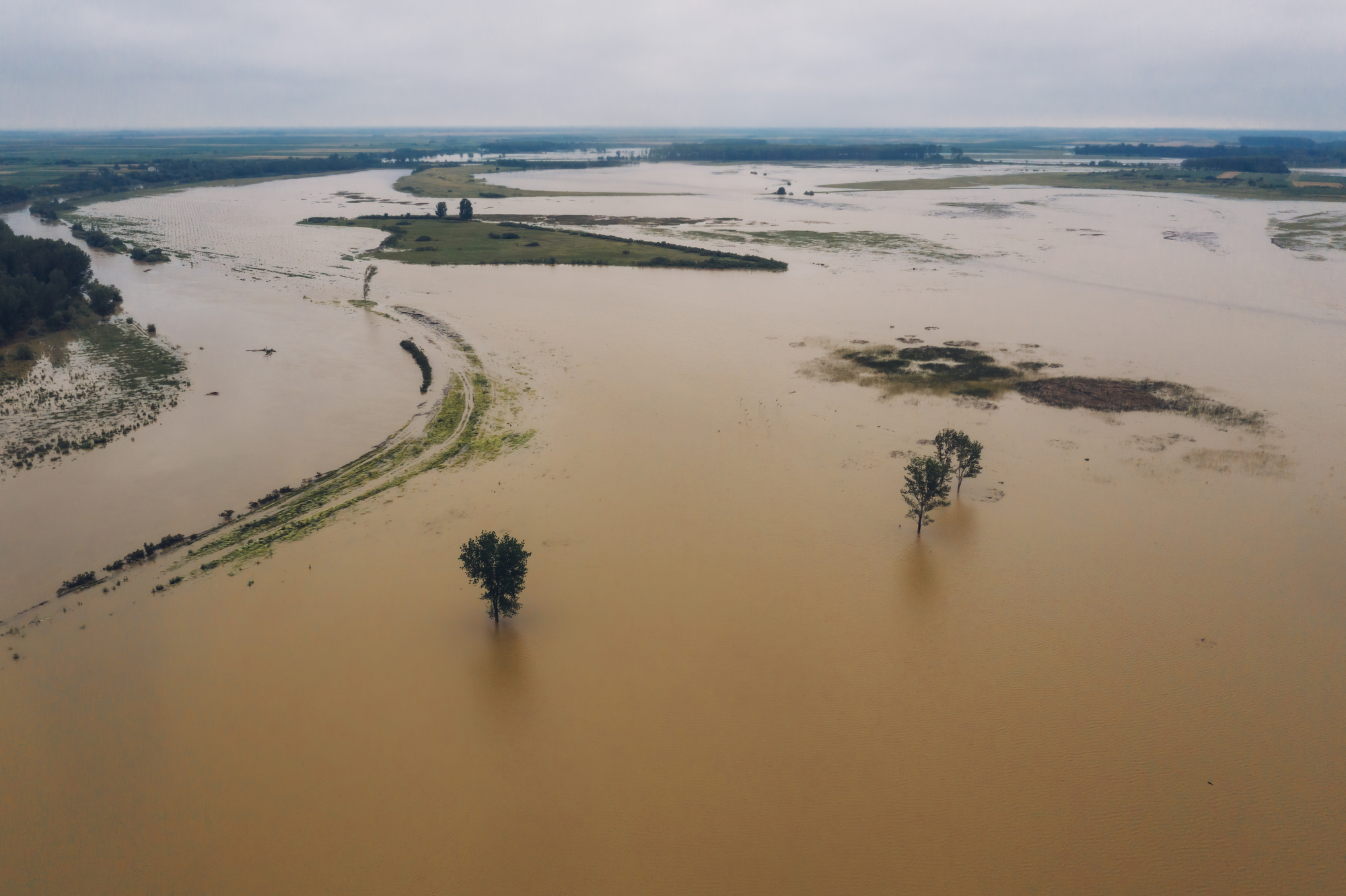A Tale of Two Seeds: Monsanto and the Dicamba Wars
Earlier this year, biotech corporation Monsanto released its first ever dicamba-resistant strain of seeds. This wouldn’t be unusual if not for the fact that the use of dicamba on GM crops is illegal in all 50 states. Dicamba is a chemical found in herbicides that disrupts hormonal functions in certain types of plants in order to kill them, and is legally sold for controlling lawn weeds. It is known for its ability to drift rapidly after application, as well as its high toxicity to non-modified soybeans. Though an herbicide made for GM crops that contains dicamba, FeXapan, is currently under review by the EPA, Monsanto released its “Xtend” seeds before the completion of the EPA’s FeXapan review. Monsanto justified this release by claiming it that it wanted to introduce farmers to the latest batch of seeds considering the worsening weed resistance to glyphosate, another common herbicide, in many parts of the U.S. Naturally, farmers that wanted to increase their yields and profits purchased the Xtend seeds and began illegally applying herbicides that contained dicamba that were not made for widespread use.
The biggest problem with farmers’ use of dicamba on Xtend seeds was not just its illegality, but how it has been affecting neighboring farmers that chose not to buy and use Xtend seeds. Since dicamba is extremely toxic to unmodified versions of soybeans, including Monsanto’s commonly used Roundup Ready varieties, farmers not using Xtend or dicamba have been suffering the consequences of their neighbor’s illegal actions. What was a simple dispute for many farmers over two different types of seeds has suddenly become a serious, and deadly, matter. On October 27th, Mike Wallace was murdered after a confrontation regarding his neighbor’s use of the pesticide Dicamba turned violent. Is it possible that Monsanto holds a moral stake in the havoc that Dicamba has wreaked on farmers this year, including the murder of Mike Wallace? And if so, what is the EPA’s responsibility moving forward?
Since the release of Xtend, thousands of acres of soybeans have been destroyed across Arkansas, Tennessee, and Missouri. Though Monsanto warns against the use of dicamba on its website, it does so directly below its description of its newly available dicamba resistant soybeans. This seems rather counterintuitive, though purposeful, according to Missourian farmer Landon Hayes. Hayes believes that “They knew that people would buy it just to protect themselves. . . . It’s a good marketing strategy, I guess. It kind of sucks for us.” Before his death, Mike Wallace expressed his belief that Monsanto was responsible for the catastrophe. He was quoted in the Wall Street journal as saying that if Monsanto had waited for dicamba to become legalized before releasing Xtend, farmers “wouldn’t have this problem.” Further proof that such a dependency was orchestrated is the fact that Monsanto has invested over $1 billion on the production of dicamba, though its use on GM crops is still illegal. If Monsanto truly did intend create a dependency on a product that required an illegal pesticide, it arguably holds some moral responsibility for the death of Mike Wallace and the economic hardship that other farmers have faced as a result of crop damage from dicamba drift.
Monsanto denies it attempted to orchestrate a dependency, and a spokeswoman for Monsanto claims that they took “extensive steps” to clearly communicate to farmers the illegality of using dicamba on Xtend seeds. Some truly believe that Monsanto’s intentions were honest and were trying to help farmers who are having trouble with glyphosate resistant weeds. Bob Scott, an Arkansas weed specialist, points out, “If we didn’t need this so bad, we wouldn’t be having this conversation.” Farmers are so desperate for a solution to the weed problem that many have offered to pay dicamba fines up front to state regulators. Additionally, Monsanto’s U.S. release of Xtend was perfectly legal, considering its approval by the USDA last year. Perhaps the responsibility of dicamba drift is more of a bureaucratic failure on behalf of the USDA and the EPA, since Xtend was legalized before dicamba was. Since Xtend isn’t any more effective than Roundup Soybeans without the use of dicamba, perhaps both agencies should have collaborated to ensure that both products had the same legality.
Whether or not Monsanto is morally complicit in the dicamba wars and death of Mike Wallace is considered unimportant to farmers who are facing the harsh realities of this year’s harvest. Tennessean famer Jason Birdsong summed up the issue of dicamba usage in his statement that, “It don’t take but one goof like we had this year, and then I think it’ll pay to have that protection. If this dicamba thing catches on, I’m sure we’re just going to ride that wagon.” Unless the EPA heavily regulates dicamba, or there is a breakthrough in weed-resistance technology, it appears as though the only option moving forward is for farmers to use dicamba, whether legal or not. In a sad twist of events, much like The Tragedy of the Commons, it will be farmers that follow the law that continue to bear the brunt of the dicamba wars.





